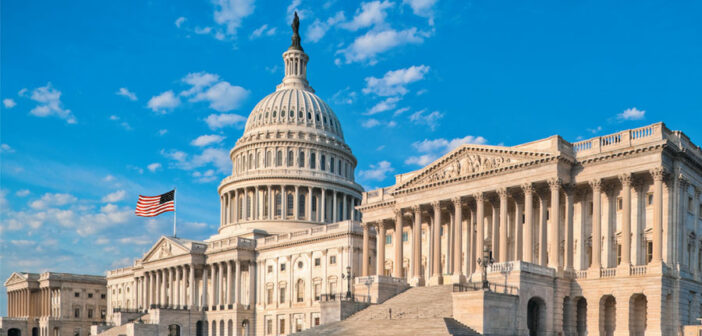Part of the rich history of CMSA is its commitment to grassroots advocacy through Day on the Hill events. Hill Day is an important advocacy event because it connects members of Congress and their staff to case managers from across the country to talk about critical issues facing our patients, families and our profession. This is a powerful experience and, in many ways, the most basic form of the democratic process.
With the shutdown of Congress over the last two years, CMSA, along with all other organizations, was forced to look at alternative ways to get our message to our legislators. Even during the pandemic, legislatures never stopped legislating and have now begun to slowly open back up to the public. While the pandemic has changed the way we participate in Hill Day from face to face to virtual, the results are still as effective. The need to provide legislators with the information necessary to make informed policy choices remains an important aspect of Hill Day. CMSA chose to adopt virtual Hill Days, which for the safety and health of the legislators and participants has become a preferred way of conducting Hill Days until the pandemic is totally abated or even longer. A Hill Day, virtual or in-person, can be a vital tool to maintain relationships with members of Congress and their staff. While virtual Hill Days are not able to give participants the experience of the usual pomp and circumstance associated with visiting Capitol Hill, the virtual Hill Day experience does mean that you also do not have to worry about getting lost in the Capitol or the expense of travel and days off work.
While the pandemic did not slow legislators down, it also did not slow the CMSA Public Policy Committee. In terms of policy, the pandemic brought about some valuable legislation through the CARES ACT. In 2021, the Public Policy Committee did a thorough review of the CARES Act and chose three priorities to focus on. They are: Telehealth, Mental Health (illness of the brain) and Workforce Development. From those three priorities, five bills, both from the Senate and the House side were selected to endorse. The committee felt that these specific bills best represented advocacy for our three priorities. The PPC followed these bills and their progress through the 117th Congress. Anticipating the end of the public health emergency, the committee felt it important that our voice be heard so that these bills would not be lost but instead would be transitioned to the 118th Congress, which is now in session. While the CARES ACT put many things in motion, most of it was temporary, and the emphasis to endorse legislation to move temporary to permanent was the focus of this year’s Hill Day. During the pandemic, access to healthcare changed quickly to protect healthcare workers and patients from COVID and to protect valuable resources such as PPE. However, those changes also forced healthcare to look at processes differently. There is a danger in these temporary provisions because systems are built differently when they are temporary versus ongoing. CMSA is advocating for permanent expansion of access to telehealth and mental health services as well as funding to include reimbursement for these services.
The 2023 Hill Days took place over four days, with 19 state teams participating. The message from each team was the same and focused around the three priorities of the PPC and the legislation that supports those priorities. During our visits, we educated our legislators and their staff about the definition of a case manager. We shared that case managers can be nurses, social workers, therapists, pharmacists, etc., and that case managers work in all healthcare settings. We also shared that case managers can have different titles, but regardless of what we are called, we all serve as advocates for our patients to support, guide and coordinate care for our patients, families and caregivers as they navigate their health and wellness journeys. Lastly, we shared that case managers are an integral part of the collaborative team model, which aims to control rising costs while reducing risk and improving health outcomes. Most importantly, we shared stories related to the work we do. Members of Congress will always feel the importance of an issue when the constituent is able to make a personal connection, and being able to draw upon those stories is quite effective. Stories stick in their minds and are easy to share with other legislators. On Hill Day we shared instances where we have encountered a lack of resources or access to care for our patients and families, especially around telehealth and how the CARES ACT opened up access to care for so many. Some shared stories about how case managers were not able to perform their job duties because of lack of staff or funding for programs. We also shared success stories about how these temporary measures have positively impacted access to care and the changes that has made in people’s lives. While the stories were different, they all helped legislators and staff relate to the work that we do as case managers and demonstrated how that work can improve outcomes.
People often think that contacting their legislators will not have any effect. On the contrary, legislators are very interested in what the public has to say. They are glad to hear from individuals in their district and see dialogue with their constituents as one of their primary objectives while in office. Communications with the people of their districts are more important than ever to legislators. The job of a member of Congress requires long hours of study on complicated issues, as well as numerous committee meetings and lengthy sessions. Because of busy schedules and the need to travel between Washington, D.C., and their district, most members of Congress often are unable to talk one on one with all of their constituents. However, that does not mean your voice cannot be heard. Talking to the staff who are responsible for healthcare legislation is equally effective. Staffers take meticulous notes that are passed on to the legislator, so rest assured that the message is related as it was presented.
Our primary goal this year was to advocate for the permanency of our three priorities and the five bills that support them. While some states were not able to talk to the legislators themselves, they were able to talk to staff and make them aware of where we would like their support. It also gave us the opportunity to identify ourselves as experts in the field of advocacy and valued members of the healthcare team. Remember, any constituent’s most useful role for a legislator is as a source of information. If you have read the bill carefully and/or understand the issues involved as a result of personal knowledge or research, you may be of great assistance to members of Congress.
It is truly an incredible experience for case managers to take part in a Hill Day. For some, this was their first time to participate. Others were more seasoned participants. Regardless of the experience level, when constituents advocate on behalf of a cause they believe in and are passionate about, it empowers them to become more engaged politically and professionally. It enables a person to tangibly connect with their passion, with the policies they are fighting for, and allows them to fulfill their civic duty of participating in democracy. Advocating for a cause on Capitol Hill provides case managers the platform to provide critical feedback to a lawmaker and serves as a check on the legislative branch by those it represents.
As case managers, we must speak in a clear, united voice because when we speak, Washington listens. Regardless of the issues we are advocating for, or whether it is a face to face or a virtual Hill Day, when we advocate on behalf of our patients, families and our profession on an issue we care about, it is a powerful feeling and one not to be forgotten!





